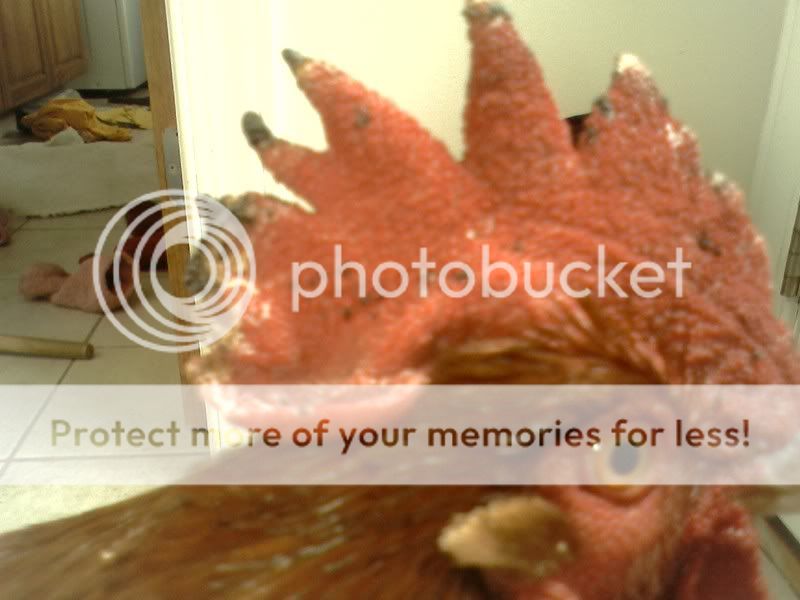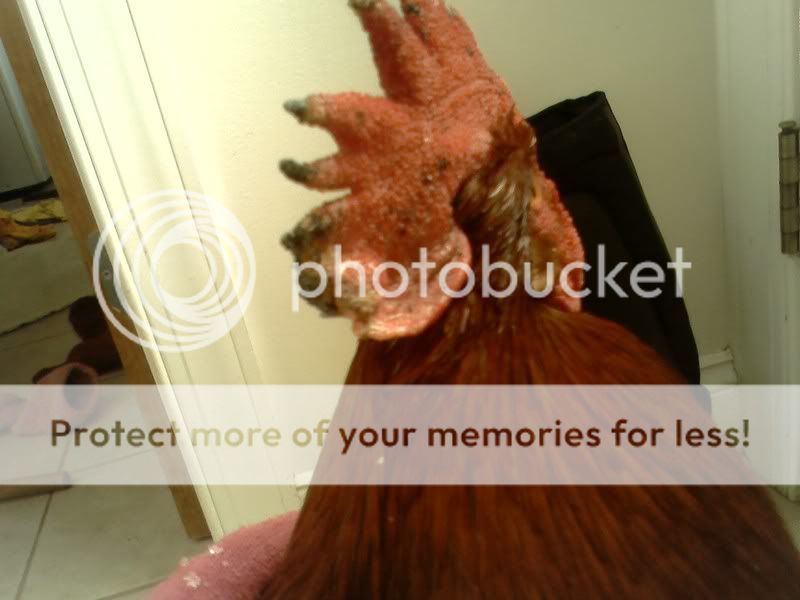Hi. I have 2 questions. I know most people's posts under this topic are more of an emergency then mine, but I would appreciate some insight on to what is going on here.
Anyways,
Question one: My roosters are trying to breed my hen. It's weird because they left her alone all spring and summer and now come winter they won't leave her alone. She's getting barebacked and I was wondering if I should separate her for from them for now...and will her feathers grow back eventually? (Currently we have one hen to 2 roosters. Yes, I know...bad idea... we had more hens in the beginning and free ranged them because we didn't have a coop at the time, and we lost all but one. We will be getting many more hens this coming spring.)
Question two: I've been noticing some black pots growing my chickens' combs. I posted about it before and I got one answer saying it was dried blood spots, but I really do not think so; I mean I'm not chicken expert...but rather than healing they seem to be getting more of these spots. My red rooster has it the worse... the ends of his comb are all black and now a bit scabby looking...the ends of his wattle are also peach-colored. It doesn't bother/hurt him to touch it, but I'm still concerned as to what it may be. Is this just a "coloration/markings" of is this some kind of disease or sickness? I've noticed that my hen has a spot on her comb too.
Pictures:



Thanks in advance.
Anyways,
Question one: My roosters are trying to breed my hen. It's weird because they left her alone all spring and summer and now come winter they won't leave her alone. She's getting barebacked and I was wondering if I should separate her for from them for now...and will her feathers grow back eventually? (Currently we have one hen to 2 roosters. Yes, I know...bad idea... we had more hens in the beginning and free ranged them because we didn't have a coop at the time, and we lost all but one. We will be getting many more hens this coming spring.)
Question two: I've been noticing some black pots growing my chickens' combs. I posted about it before and I got one answer saying it was dried blood spots, but I really do not think so; I mean I'm not chicken expert...but rather than healing they seem to be getting more of these spots. My red rooster has it the worse... the ends of his comb are all black and now a bit scabby looking...the ends of his wattle are also peach-colored. It doesn't bother/hurt him to touch it, but I'm still concerned as to what it may be. Is this just a "coloration/markings" of is this some kind of disease or sickness? I've noticed that my hen has a spot on her comb too.
Pictures:



Thanks in advance.
Last edited:
